
Milk isn’t just about cows anymore! With so many choices lining the grocery store shelves, picking the right one can feel like a challenge. From almond and soy to oat and coconut, each type of milk offers unique benefits and flavors.
In this article, we’ll explain the different kinds of milk, explaining what makes each one special and helping you decide which is the healthiest choice.

Cow’s Milk
Let’s start with cow’s milk, still the undisputed most popular milk in the grocery aisles. Here is the nutrition for 1 cup of 2% reduced-fat cow’s milk:
- Calories: 122
- Carbohydrates: 12 g
- Fiber: 0 g
- Sugar: 12 g
- Added Sugar: 0 g
- Protein: 8 g
- Total Fat: 4 g
- Saturated Fat: 3 g
- Sodium: 96 mg
- Calcium: 309 mg (24% DV)
- Potassium: 390 mg (8% DV)
- Vitamin B12: 1.3 mcg (54% DV)
Vitamin D: 2.77 mcg (14% DV)
Cow’s milk is a nutritional powerhouse, offering 8 grams of protein per cup—similar to what you’d get from an ounce of cooked meat. It’s rich in essential nutrients like calcium for strong bones, vitamin B12 for brain health and metabolism, and potassium for maintaining healthy blood pressure and heart function. Most of all, it’s a balanced mix of protein, carbs, and fat.
Commercially sold milk is often fortified with vitamin D, aiding calcium absorption and helping you meet your daily vitamin D needs—important since this vitamin is naturally scarce, found mainly in eggs and fatty fish. Despite its sugar content being from natural lactose, unflavored milk has no added sugars and remains one of the most affordable options. Additionally, milk serves as the foundation for nutritious dairy products like cheese, butter, and yogurt.
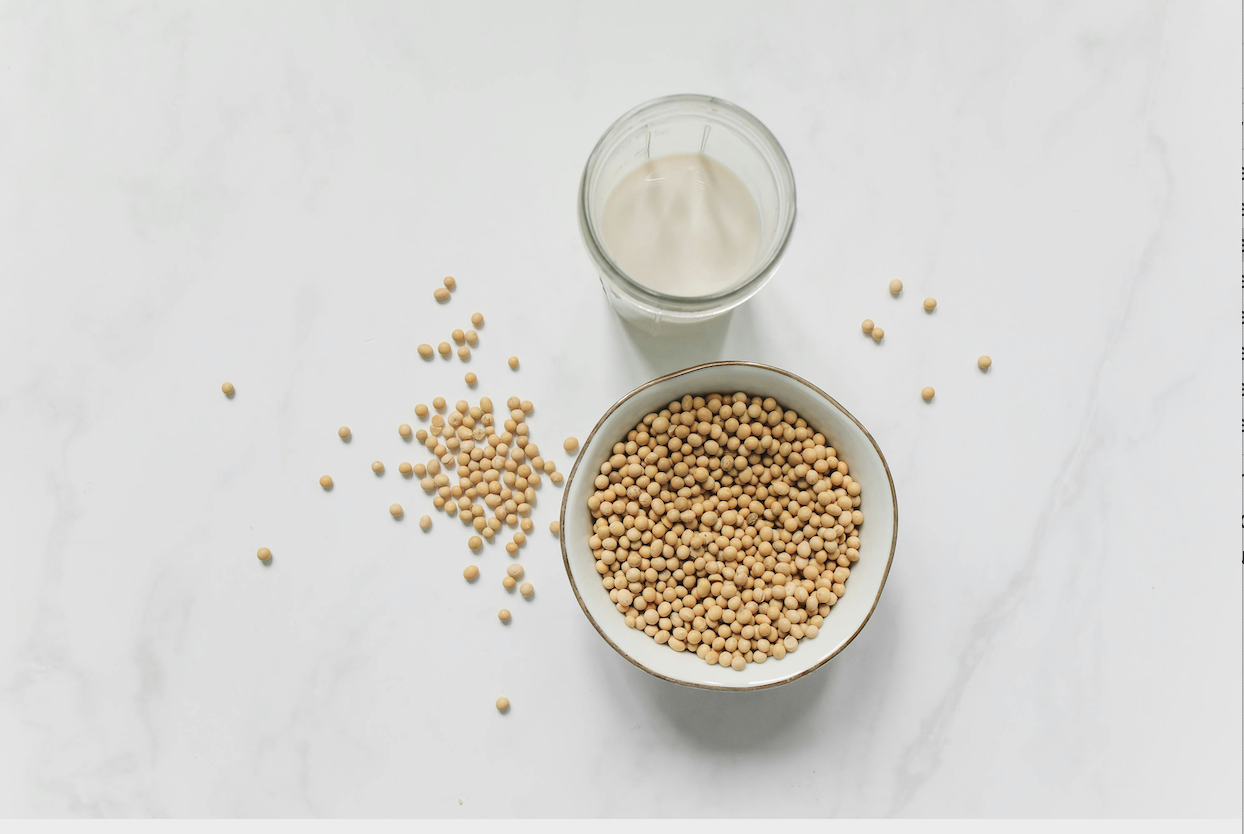
Soy Milk
Let’s take a quick look at the nutritional value of 1 cup of plain unsweetened soy milk.
- Calories: 80
- Carbohydrates: 4 g
- Fiber: 1 g
- Sugar: 1 g
- Added Sugar: 0 g
- Protein: 7 g
- Total Fat: 4 g
- Saturated Fat: 0 g
- Sodium: 85 mg
- Calcium: 299 mg (23% DV)
- Potassium: 299 mg (6% DV)
- Vitamin B12: 1.23 mcg (51% DV)
- Vitamin D: 0 mcg
Soy milk is made by blending soaked soybeans with water and straining the solids, leaving a smooth, milk-like liquid. It’s a popular plant-based drink and an alternative to soy milk, known for its high nutritional profile.
High in protein and nutrients like calcium and vitamin B12, soy milk is a good source of essential amino acids for muscle and tissue health. And because it’s low in saturated fats, it’s considered heart-healthy.
It’s best to check the label, though. Some soy milks are sweetened (watch out for that sugar content), and not all soy milks are fortified with Vitamin D, which is essential for calcium absorption.
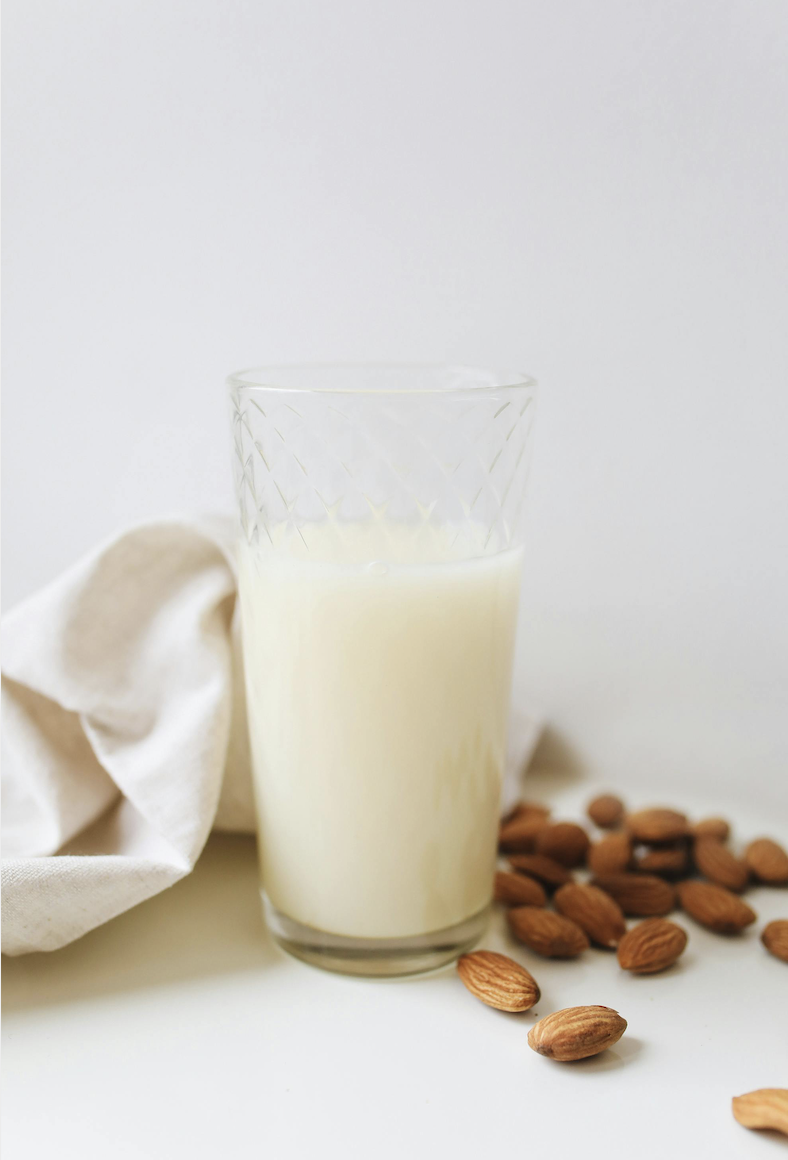
Almond Milk
Plant-based, almond milk has become increasingly popular in the last few years. And why wouldn’t it be? It doesn’t contain cholesterol (plus points for weight management) and lactose (perfect for those who are lactose-intolerant), and is low in calories, carbs, and fat. However, one drawback is that it does not contain protein, so a vegan who prefers this milk have to look for other sources of protein.
For other nutrients, almond milk manufacturers make it more enticing by fortifying it with nutrients like calcium and vitamin D to increase its nutritional value. All in all, though almond milk is not as nutritious as cow’s or soy milk, it’s a lighter option for a milk alternative. Since it’s thin and very light, you won’t get the creamy satisfaction of mixing with with coffee. But with pastries, especially for vegan treats, almond milk works just fine.
Another drawback is that nuts are very high in phytic acid, and almond milk contains many almond nuts. Phytic acid has many negative side effects: it decreases mineral absorption and can interfere with vital enzymes, such as pepsin, which is crucial in breaking down proteins.
Here’s the nutritional facts for 1 cup of unsweetened almond milk:
- Calories: 39
- Carbohydrates: 3 g
- Fiber: 0 g
- Sugar: 2 g
- Added Sugar: 0 g
- Protein: 1 g
- Total Fat: 3 g
- Saturated Fat: 0 g
- Sodium: 189 mg
- Calcium: 482 mg (37% DV)
- Potassium: 176 mg (4% DV)
- Vitamin B12: 0 mcg
- Vitamin D: 1 mcg (5% DV)

Coconut Milk
You’ve probably heard of coconut milk as a popular ingredient in Southeast Asian dishes, but it’s also a popular plant-based milk alternative. Coconut Milk is the liquid that emerges, after grating coconut flesh and working that with water. Compared to other kinds of milk, coconut millk is slightly lower in calories, and also contains almost no protein. However, coconut milk contains slightly more fat primarily from the flesh of the coconut. Compared to almond, soy, or oat milk, coconut milk might not be a mainstay in coffee shops, but in Vietnam, coconut coffee is popular and quite the rage among tourists.
Here is the nutrition for 1 cup of coconut milk.
- Calories: 76
- Carbohydrates: 7 g
- Fiber: 0 g
- Sugar: 6 g
- Added Sugar: 0 g
- Protein: 1 g
- Total Fat: 5 g
- Saturated Fat: 2 g
- Sodium: 46 mg
- Calcium: 459 mg (35% DV)
- Potassium: 46 mg (1% DV)
- Vitamin B12: 1.5 mcg (63% DV)
- Vitamin D: 2.4 mcg (12% DV)
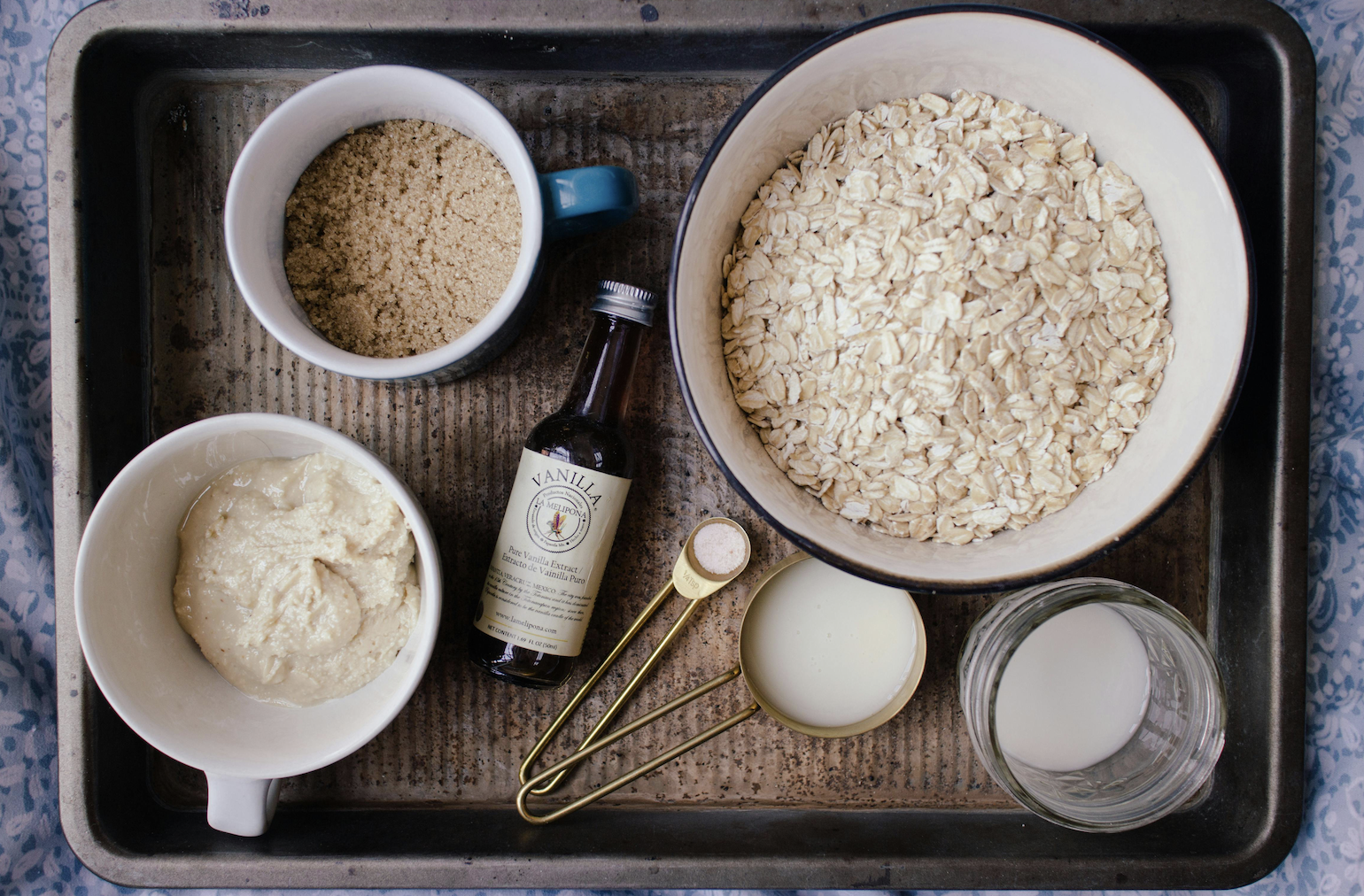
Oat Milk
Oat Milk is considered the darling of all plant-based milks, and for good reason. It’s creamy and delicious, and it froths up and holds up well in lattes.
Oat Milk is 100% whole grain, rich in fiber, plant-based protein, B vitamins, and minerals like iron, calcium, and magnesium. Additionally, oats are associated with a lower risk of heart disease due to their content of beta-glucan, a type of fiber that has been shown to improve cholesterol levels and assist with blood sugar regulation. This fiber also acts as a prebiotic, nourishing your body’s probiotics and supporting the survival and growth of these beneficial bacteria. Furthermore, consuming foods with beta-glucan has been linked to enhanced immunity and better gut health. Here is the nutrition for 1 cup of oat milk.
- Calories: 120
- Carbohydrates: 16 g
- Fiber: 2 g
- Sugar: 7 g
- Added Sugar: 0 g
- Protein: 3 g
- Total Fat: 5 g
- Saturated Fat: 1 g
- Sodium: 101 mg
- Calcium: 350 mg (27% DV)
- Potassium: 389 mg (8% DV)
- Vitamin B12: 1.2 mcg (50% DV)
- Vitamin D: 0 mcg
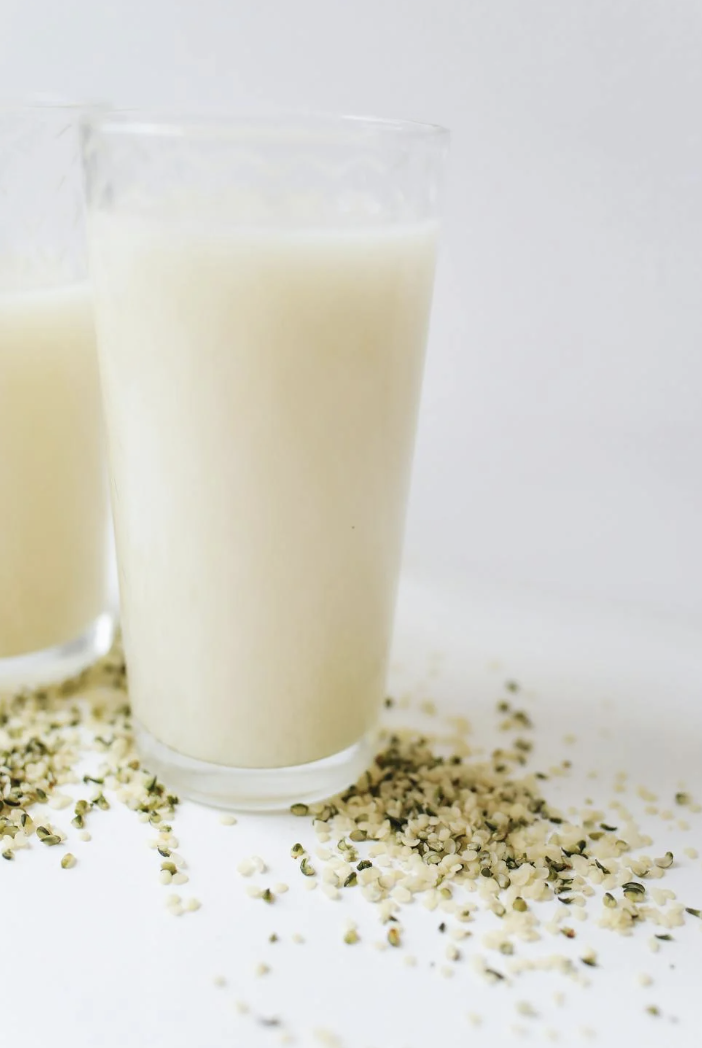
Hemp Milk
When it comes to options for plant-based milks, one cannot underestimate hemp milk. Made from hemp seeds soaked in water, hemp milk is a powerhouse of nutrients, such as calcium, healthy fats, and iron— all essential to the body’s development. It also contains, according to Science Direct, magnesium, potassium, and some vitamin A. It’s also a good source of fiber. Hemp milk is rarely fortified with B12 or Vitamin D, so that is something to note among plant-based eaters. Compared to cow’s milk, hemp milk has fewer calories and carbs. Lastly, hemp milk also has a higher price point than most milks, something to chew on when you’re choosing among cartons in the grocery aisles.
Here’s what 1 cup of hemp milk contain:
- Calories: 46
- Carbohydrates: 6 g
- Fiber: 2 g
- Sugar: 1 g
- Added Sugar: 0 g
- Protein: 2 g
- Total Fat: 3 g
- Saturated Fat: 0 g
- Sodium: 79 mg
- Calcium: 29 mg (3% DV)
- Vitamin A: 499 IU (10% DV)
- Iron: 0.36 mg (2% DV)

Rice Milk
And last but not the least, we have rice milk. This type of milk is slightly sweeter than cow’s milk due to the breakdown of the carbohydrate once processed. Rice milk has a white or offwhite color, and has a creamy texture similar to cow’s milk. In terms of health goodies, how does it hold up? While it’s significantly lower in protein than cow’s milk or other milk alternatives, rice milk is higher in carbs, which means this can give you an energy boost when needed. Like most milks sold in groceries, the content of rice milk are fortified to have calcium, B12 and iron, making it a good alternative for those on a plant-based diet.
Nutritional facts of rice milk:
- Calories: 113
- Carbohydrates: 22 g
- Fiber: 1 g
- Sugar: 13 g
- Added Sugar: 0 g
- Protein: 1 g
- Total Fat: 2 g
- Saturated Fat: 0 g
- Sodium: 93 mg
- Calcium: 283 mg (22% DV)
- Vitamin B12: 1.5 mcg (63% DV)
- Iron: 0.5 mg (3% DV)
The bottomline
So which one’s the healthiest among them all? Unfortunately, there’s no one answer.
Factors such as individual dietary needs, taste preferences, and ethical considerations all play a role in determining the optimal milk option for each person. Rather than seeking a definitive answer, embracing the diversity of milk varieties empowers consumers to select the option that aligns best with their unique lifestyle and values. So, whether you prefer the creaminess of dairy or the plant-based goodness of alternatives like almond or soy, rest assured that making an informed choice ensures you’re nurturing both your body and your taste buds.
Tags
References:
https://www.womenshealthmag.com/food/g30474548/types-of-milk/
https://www.usatoday.com/story/life/food-dining/2024/04/14/what-is-the-healthiest-milk/73259897007/
https://www.sciencedirect.com/topics/agricultural-and-biological-sciences/hemp-milk
https://www.healthline.com/health/milk-almond-cow-soy-rice#coconut-milk


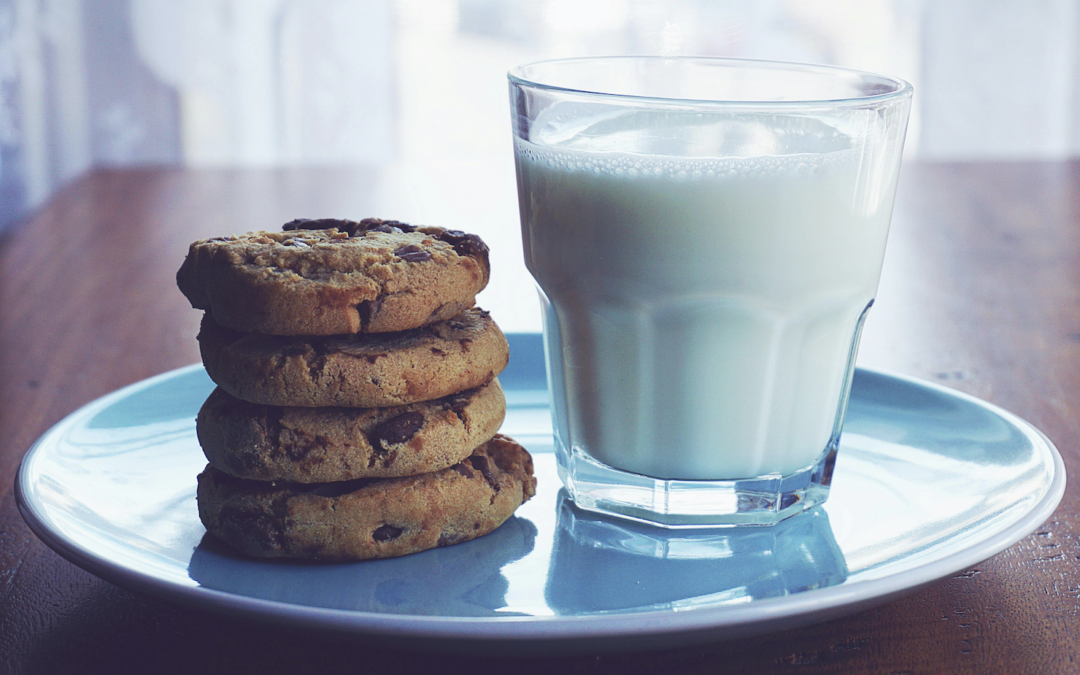
0 Comments